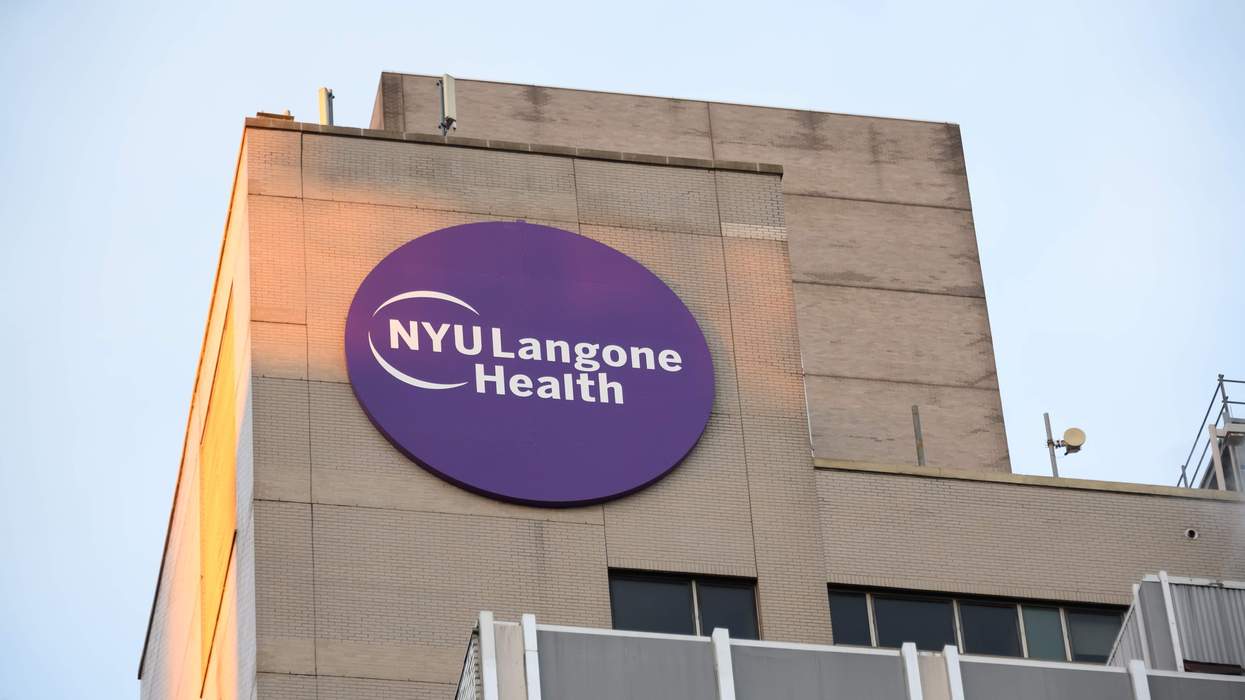The "Transgender Tipping Point" was declared last year by Time magazine in a June cover story on actress Laverne Cox. Since then, not a day has gone by without an article (or three) popping up on transgender people's struggle for equality.
One issue in the fight is a remnant of a policy many thought cast aside when "don't ask, don't tell" was officially repealed in 2011 -- the fact that transgender people cannot serve openly in the United States military. The repeal of DADT affected only LGB servicemembers, leaving their trans brothers and sisters in arms forced to remain in the closet. Since then, no one has brought out of the shadows one of the main impediments to open service for all LGBT military personnel.
So let's take this from the top. Individuals wishing to serve in the U.S. military must undergo medical evaluation at one of the 65 Military Entrance Processing Stations, or MEPs. The U.S. Military Entrance Processing Command, a.k.a. USMEPCOM, falls under the purview of the Secretary of the Army and is governed by regulations endorsed by all the services. MEPs are the unbiased gatekeepers that ensure only America's finest are qualified for military service.
Each MEP has a team of medical professionals that fall under the direction of the chief medical officer. The CMO is a civilian doctor in the employ of the U.S. government, and is charged with ensuring that prospective soldiers, sailors, airmen, Marines, and Coast Guard personnel meet the criteria set forth in Army Regulation 40-501, Standards of Medical Fitness. This regulation dovetails into each branch's individual regulations and guidelines that outline medical readiness for active duty and reserve components. The CMO has great latitude in interpreting and enforcing the standards of medical fitness, and while each service retains certain rights to override the CMO's decisions regarding who is or is not fit for service, often the CMO's recommendation is the prevailing one.
What most people, even those who have served in the military, fail to understand is that it is not the CMO's job to qualify people for the military. It is their job to disqualify people.
Now, you won't find this outlined in any regulation, but think about this for one moment and it starts to make sense. The country expects and demands only the best out of our military. In the 240 years since the founding of the Continental Army, our military has stood as symbol of pride and accomplishment, and one of the most honored and revered professions one can have. Regardless of how one feels about military service, few would argue with the expectation that the folks that serve be a cut above the rest. The process of assuring this starts with the CMO.
There is another reason for wanting the best, the brightest, and the most physically fit specimens. The military health care system inherits these folks 100 percent. That means any preexisting condition now becomes a liability to the military, and subsequently the taxpayer. Not only is any such condition a potential impediment to the soldier's readiness and ability to endure the rigors of combat, it now becomes a financial burden to the services, which are already under intense scrutiny for spending.
A commission sponsored by the Palm Center and fueled by a $1.3 million grant from Lt. Col. Jennifer Pritzker, herself a transgender veteran, concluded in 2014 that there existed "no compelling medical reason" to exclude transgender people from military service. The commission's findings and subsequent research are the foundation of the argument that the nation's estimated 15,500 transgender service members should be allowed to serve openly, but here again, no one peels that onion back.
Here's the rub. How does the military define a transgender person? Even within the community, this topic is hotly debated. Where does the transition begin, and where, if ever, does it end? How does one define what would be acceptable and what would not? The questions this conjures up are endless.
If we argue that the transgender phenomena is a biological one -- a result of gender dysphoria -- then how do we expect the military to provide an exception for us to serve when it won't do so for someone with less restraining medical conditions?
The answer is what looms large within the Department of Defense; it already disqualifies potential service members for certain preexisting medical conditions, such as asthma, hernia, abnormal Pap smears, and even undescended testicles. Shockingly, the Pentagon estimates that three out of four of today's youth are unfit for military service, with obesity and other medical conditions disqualifying about 35 percent of candidates (criminal records, drug use, and failing to graduate from high school knock out many others). Veteran journalist Dan Rather was turned away from military service because he fell ill with fever -- as a child. The military doesn't take well to diseases, including gender dysphoria.
"Transgender" is an umbrella term that covers many gender-variant individuals. Indeed, the Williams Institute's 2014 estimate that 15,500 serving military members are transgender is based on research and studies that lump all gender-variant individuals together. However, many in the DOD consider these numbers suspect, and one of the first priorities of the military should be an actual assessment of its ranks.
The Department of Veterans Affairs, which adopted a transgender-friendly policy in 2011 and strengthened it in 2013, has stated that fewer than 2,500 of its 6 million veteran patients sought transgender-related health care in 2013. The report, prepared by the National Center for Veterans Analysis and Statistics, included all priorities for care for veterans qualifying for VA benefits. Additionally, formal and informal organizations of transgender veterans and servicemembers number in the hundreds, not the thousands. Even accounting for those who may fear coming forward still does not bridge the gap between these two statistics. Realistically, the military may be looking at hundreds, not thousands, of troops who actually identify as transgender and who might seek medical interventions in the way of hormone therapy and surgery.
The term "transgender" also encompasses those who may cross-dress or partake in other activities that blur the gender spectrum. This is another complication. Should the military actually begin allowing for transgender troops, where does that start and where does that end? What if a trans man wants bottom surgery but not top, or vice versa? What about people who consider themselves trans, but do not want to pursue any surgical options? This allows for any conceivable combination of physical traits; how does that soldier then integrate in the binary system of male and female ingrained in the military structure?
Of course, this problem seems to have been overcome in the 18 nations that allow transgender service members. The U.S. Army, though, is nearly 10 times larger than that of the United Kingdom, to say nothing of our other NATO allies. What may be a relatively minor issue for other nation's militaries becomes much more complex when dealing with the enormity of the U.S. military machine. This is where the 15,500 number that many transgender activists readily invoke actually works against us. A smaller number is much more palatable than the one that is being pushed to the Pentagon today, to both the DOD and eventually the taxpayers.
However, even if an exception is made for this biological condition, the U.S. military sets a precedent of admitting personnel with a preexisting medical condition. At that point, it becomes open season for anyone who has been medically disqualified to challenge the government and its policy of accepting only the "best of the best." This is truly the hurdle that transgender service members face. It's not if we can perform. The question is how to overcome the medical question without opening the gates to every person who has been medically barred from military service.
















Charlie Kirk DID say stoning gay people was the 'perfect law' — and these other heinous quotes
These are some of his worst comments about LGBTQ+ people made by Charlie Kirk.